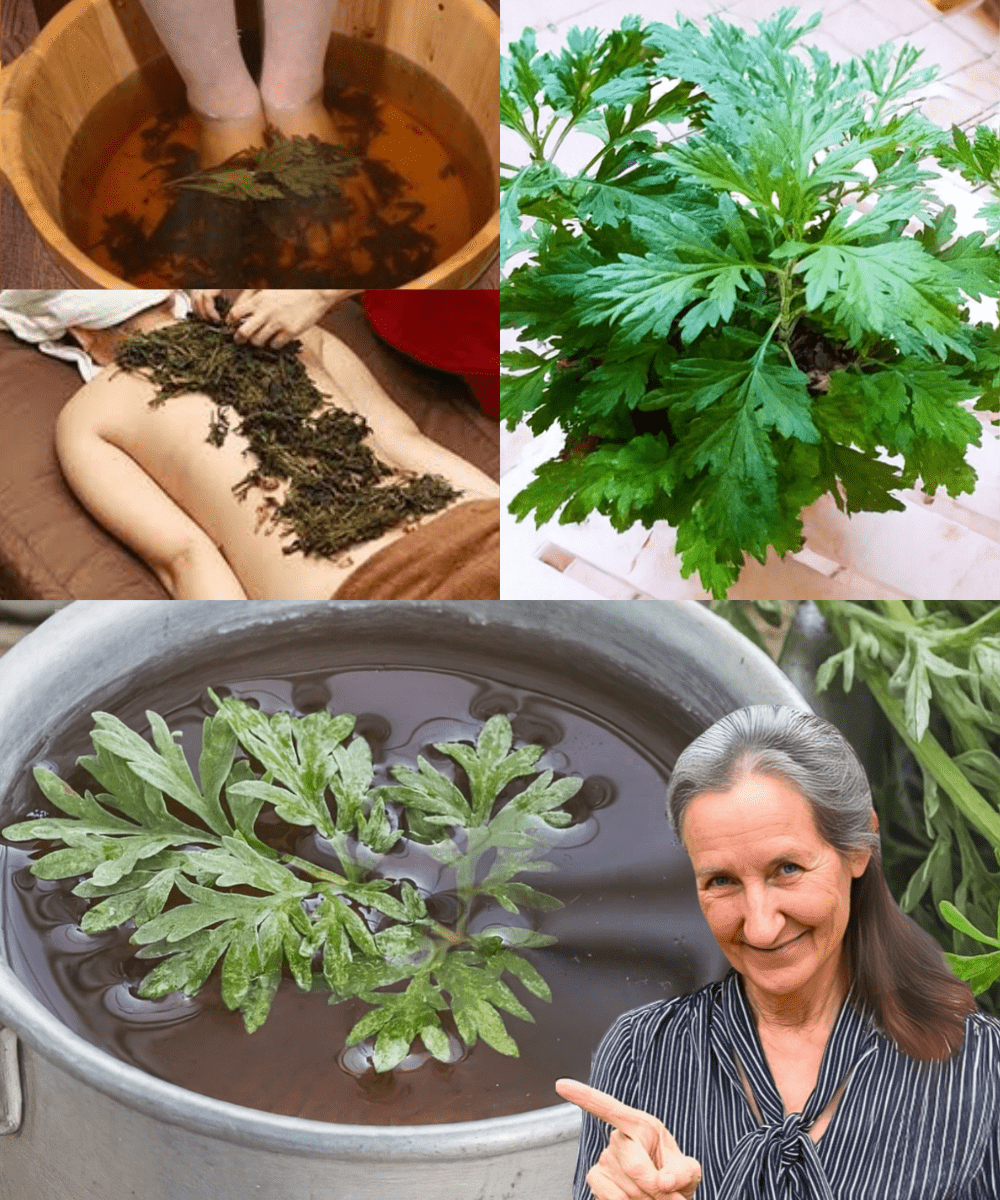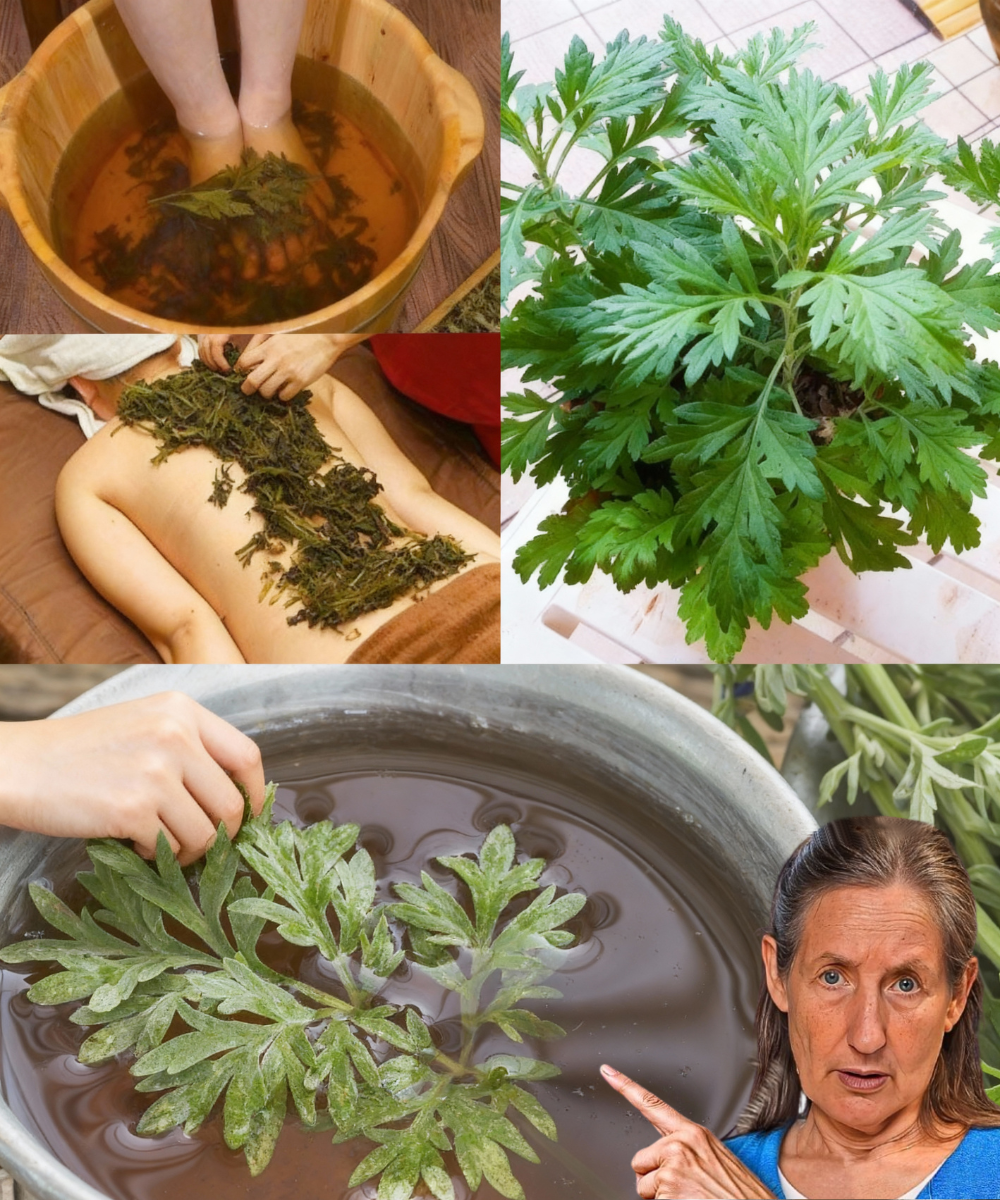Hidden in the silvery-green leaves of a humble herb lies a secret that has captivated healers, mystics, and herbalists for centuries. Wormwood (Artemisia absinthium), with its intoxicating aroma and bitter bite, is no ordinary plant. Once the heart of the enigmatic absinthe and a staple in ancient medicine, this potent herb is a treasure trove of healing properties waiting to be rediscovered. From soothing digestive woes to fighting parasites and easing pain, wormwood offers a natural solution for modern ailments.
Step into the world of this ancient herb and uncover its remarkable benefits. Whether you’re seeking to boost your health or tap into nature’s wisdom, wormwood’s versatile powers will leave you intrigued and inspired. Let’s explore why this overlooked plant deserves a starring role in your wellness journey and how to use it safely to unlock its full potential.

🌱 What Makes Wormwood So Special?
Wormwood, a member of the Asteraceae family, thrives in sunny, well-drained soils across Europe, North Africa, and Asia. Known by names like green ginger or absinthe wormwood, this perennial herb grows to 2–4 feet, adorned with feathery leaves and clusters of small yellow flowers. Its magic lies in its potent compounds—thujone, absinthin, flavonoids, and essential oils—that deliver a wide range of medicinal benefits.
Far more than a historical curiosity, wormwood has been revered for millennia, from ancient Greek remedies to traditional Chinese medicine. Its bold, bitter flavor and powerful effects make it a standout in the world of herbal healing. Ready to discover how wormwood can transform your health? Let’s dive into its 10 incredible benefits.
🌼 10 Powerful Health Benefits of Wormwood
🍵 Revitalizing Digestive Health
Wormwood’s bitter compounds are a boon for your digestive system. By stimulating the production of digestive enzymes and bile, this herb helps break down food and ease discomfort. Struggling with bloating, gas, or indigestion? Wormwood promotes healthy digestion, improves appetite, and relieves constipation, making it a natural ally for a happy gut.
How to Use: Steep 1 teaspoon of dried wormwood leaves in hot water for 5–10 minutes to make a soothing tea. Add honey or peppermint to soften its bitter taste.
🛡️ Combating Parasites and Infections
True to its name, wormwood has a storied history as a remedy for intestinal worms like roundworms and pinworms. Its antimicrobial properties also make it effective against harmful bacteria and fungi, helping to prevent infections in wounds or within the body.
How to Use: Incorporate wormwood into a parasite cleanse alongside herbs like black walnut hulls and cloves, under the guidance of a healthcare professional.
🔥 Soothing Inflammation
Wormwood’s antioxidants, including chamazulene and flavonoids, work to reduce inflammation throughout the body. Whether you’re dealing with rheumatoid arthritis, muscle soreness, or joint pain, this herb offers natural relief by calming swelling and discomfort.
How to Use: Apply diluted wormwood essential oil to sore joints or muscles, or sip wormwood tea to address internal inflammation.
💪 Supporting Liver Vitality
Your liver works hard to detoxify your body, and wormwood lends a helping hand. By stimulating bile production, this herb aids the liver in processing toxins, promoting overall liver health and enhancing your body’s natural detox pathways.
How to Use: Take wormwood as a tincture or tea in small doses to support liver function, but always follow dosage guidelines to avoid overconsumption.
🧬 Potential Anticancer Properties
Emerging research suggests that wormwood’s compounds, particularly artemisinin, may have anticancer effects, showing promise against breast and colon cancer cells. While more studies are needed, these early findings highlight wormwood’s exciting potential as a complementary therapy.
How to Use: Consult a healthcare provider before using wormwood for this purpose, as it requires precise dosing and professional oversight.
🌸 Easing Menstrual Discomfort
For women experiencing menstrual cramps or irregular cycles, wormwood offers relief. Its anti-inflammatory and antispasmodic properties help soothe uterine inflammation and reduce painful cramps, promoting a smoother menstrual experience.
How to Use: Drink wormwood tea during your cycle to ease discomfort, but avoid use during pregnancy due to its stimulating effects on the uterus.
🧠 Enhancing Mental Clarity
Wormwood’s mild sedative and stimulating effects create a unique balance that can sharpen focus and calm the mind. Whether you’re feeling stressed, anxious, or mentally foggy, this herb may help improve mental clarity and promote a sense of calm.
How to Use: Use wormwood essential oil in aromatherapy or sip a small amount of tea to support mental well-being.
🩹 Promoting Skin Health
Wormwood’s antimicrobial and anti-inflammatory properties make it a natural remedy for skin conditions like eczema, acne, or minor wounds. Its ability to cleanse and soothe the skin helps promote a clear, healthy complexion.
How to Use: Dilute wormwood essential oil with a carrier oil and apply to affected areas, or use a wormwood-infused salve for daily skin care.
🦟 Repelling Pests Naturally
Wormwood’s strong, aromatic scent is a natural deterrent for insects like moths, fleas, and mosquitoes. This makes it a fantastic addition to your home or garden as a non-toxic pest repellent.
How to Use: Place dried wormwood leaves in sachets around your home or garden to keep pests at bay.
🍷 Adding a Bitter Twist to Culinary Creations
While less common today, wormwood’s bitter flavor has been used to enhance dishes and beverages. It remains a key ingredient in absinthe and some vermouths, adding a distinctive, herbal note to culinary creations.
How to Use: Use wormwood sparingly in recipes or explore traditional beverages like absinthe for a taste of its unique flavor.
🌿 How to Use Wormwood Effectively
Ready to bring wormwood into your wellness routine? Here are the most effective ways to harness its benefits:
🍵 Teas and Tinctures
Wormwood tea or tinctures are ideal for digestive health, parasite cleanses, or mental clarity. To make tea, steep 1 teaspoon of dried leaves in hot water for 5–10 minutes. Due to its bitter taste, blend with soothing herbs like peppermint or sweeten with honey.
🧴 Essential Oil Applications
Wormwood essential oil is perfect for aromatherapy or topical use. Dilute it with a carrier oil (like coconut or olive oil) and apply to sore muscles, joints, or skin for relief. Inhaling the oil’s aroma can also promote relaxation and focus.
🌱 Parasite Cleanse Formulations
Wormwood is often combined with other herbs like black walnut and cloves for a powerful parasite cleanse. Follow a professionally designed protocol to ensure safety and effectiveness.
🏡 Natural Pest Control
Use dried wormwood leaves or sachets to repel insects in your home or garden. Its strong scent keeps pests away without harmful chemicals.

⚠️ Safety First: Using Wormwood Wisely
Wormwood’s potency, particularly due to its thujone content, requires careful use to avoid side effects:
- Avoid Overuse: Excessive consumption can lead to nausea, dizziness, or, in rare cases, seizures. Stick to recommended dosages.
- Not for Pregnancy or Breastfeeding: Wormwood may stimulate uterine contractions, making it unsafe during pregnancy or breastfeeding.
- Allergy Awareness: Those allergic to Asteraceae family plants (like ragweed or daisies) may experience sensitivities.
- Drug Interactions: Wormwood may interact with anticoagulants, antiepileptics, or sedatives. Consult a healthcare provider before use.
- Short-Term Use: Limit wormwood use to short periods to prevent potential toxicity.
Always consult a healthcare professional or herbalist before starting wormwood, especially if you have underlying health conditions or are new to herbal remedies.
🌍 Wormwood’s Timeless Legacy
Wormwood’s rich history adds to its allure. Ancient Greeks and Romans used it for everything from digestive tonics to spiritual protection, while traditional Chinese medicine valued its cleansing properties. In the 19th century, wormwood gained fame as the key ingredient in absinthe, a drink both celebrated and shrouded in mystery. Even in folklore, wormwood was hung in homes or burned as incense to ward off evil spirits, blending its practical and mystical roles.
Today, wormwood continues to shine as a versatile, powerful herb. Whether you’re sipping its tea, applying its oil, or using it to keep pests at bay, this ancient plant offers a bridge between time-honored traditions and modern wellness.
🌟 Embrace the Power of Wormwood
Wormwood is more than a bitter herb—it’s a gateway to natural healing and vitality. From supporting digestion and fighting infections to soothing pain and repelling pests, its benefits are as diverse as they are profound. By using wormwood thoughtfully and responsibly, you can tap into the wisdom of ancient healers and bring a touch of nature’s magic into your life.
Next time you encounter this silvery-green herb, pause and appreciate its hidden power. With wormwood by your side, you’re not just embracing a plant—you’re unlocking a world of health, history, and possibility.